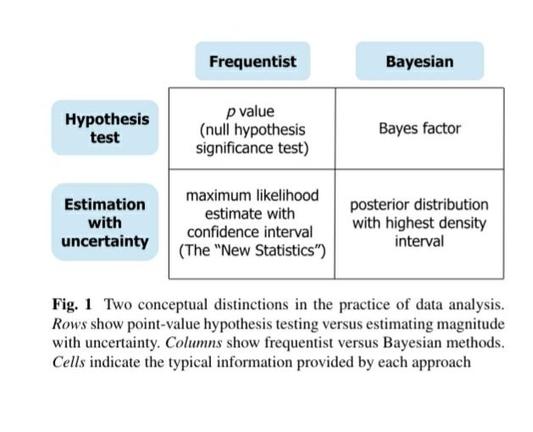#statstab #346 Jeffreys-Lindley paradox
Thoughts: I like this short explanation of the "paradox" of why frequentist and bayesian inference can differ.
#paradox #frequentist #bayesian #inference #bayesfactor #pvalue #explanation
https://michael-franke.github.io/intro-data-analysis/jeffreys-lindley-paradox.html
